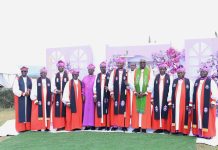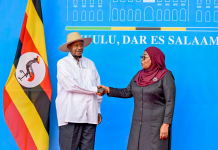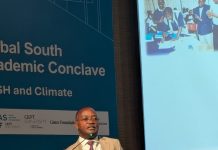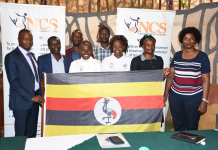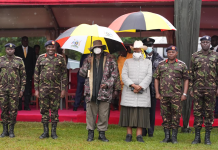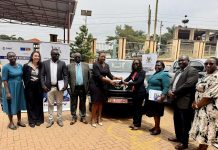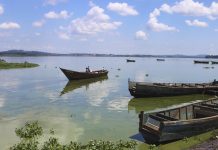The Ministry of Energy and Minerals Development is requesting a supplementary budget of Shs128 billion to link 200,000 households in the current financial year.
This is part of Shs318 billion presented before the House Committee on the Budget on Tuesday, December 5, 2023.
“This amount is external financing from the World Bank for the Electricity Access Scale Up Project (EASP), which was withheld during appropriation due to the project’s delayed effectiveness,” said Hon. Sidronious Okaasai, the Minister of State for Energy.
The Budget Committee is handling a supplementary budget of Shs3.5 trillion for the financial year 2022/2023, tabled by the State Minister for Finance, Henry Musasizi.
The supplementary budget includes Shs197 billion for road construction, Shs47 billion to support the deployment of medical interns and their allowances, and Shs37 billion for renovating Speke Resort Munyonyo ahead of the Non-Aligned Movement and the G77 Summits next year.
Okaasai assured Members of Parliament that, with the allocated funds, the Ministry will connect most households that have installed electric poles, free of charge.
“By expanding electricity access, the unit cost is likely to decrease as more people contribute. Provide the funds, and you will witness the connections starting next month,” he said.
Okasaai mentioned that the EASP has been operational since July 2023 but requires additional funding to activate some activities.
The Ministry’s supplementary request includes Shs30 billion to cover startup costs for the Karuma Hydro Power Plant, such as plant insurance, permits, service contracts, and specialized tools.
“This funding is intended to support the project’s implementation, aiming to commence commercial operations in November 2023,” Okaasai said.
He also requested Shs58 billion to cover shortfalls in contractual obligations for deemed energy under the Lira-Agago transmission line for the Achwa-Agago dam.
Members of Parliament approved the supplementary request while cautioning the Ministry to fulfill their promise by prioritizing connections for rural-based households.
“One reason some of us supported the disbandment of the Rural Electrification Agency was their operation method, connecting power with segregation. I generate electricity in my constituency, but I do not have power; I would like to see that when this money is given, we shall have electricity in my constituency for once,” said Hon. Wilfred Niwagaba (Ind., Ndorwa County East).
Sheema Municipality MP, Dicksons Kateshumbwa, expressed concern over vast sums spent on deemed energy and urged the Ministry to utilize the supplementary budget to start using the energy.
“We are tired of deemed energy; we need assurance that when this balance is finally paid, this country will not continue paying vast sums because we have paid huge sums at the expense of connections. We do not want to hear you coming next year bringing requests on deemed energy,” Kateshumbwa said.
He asked the ministry to share the roadmap for the implementation of the 200,000 connections, saying, “Now that the World Bank funding was approved, and that we are going to approve this supplementary, can we start seeing the roadmap?” asked Kateshumbwa.





